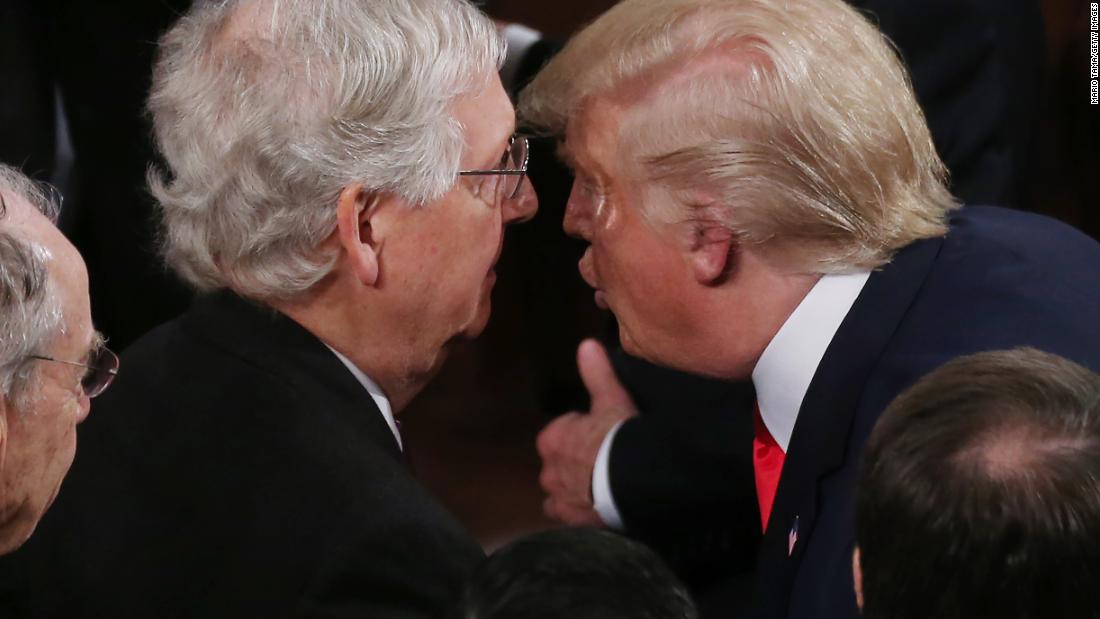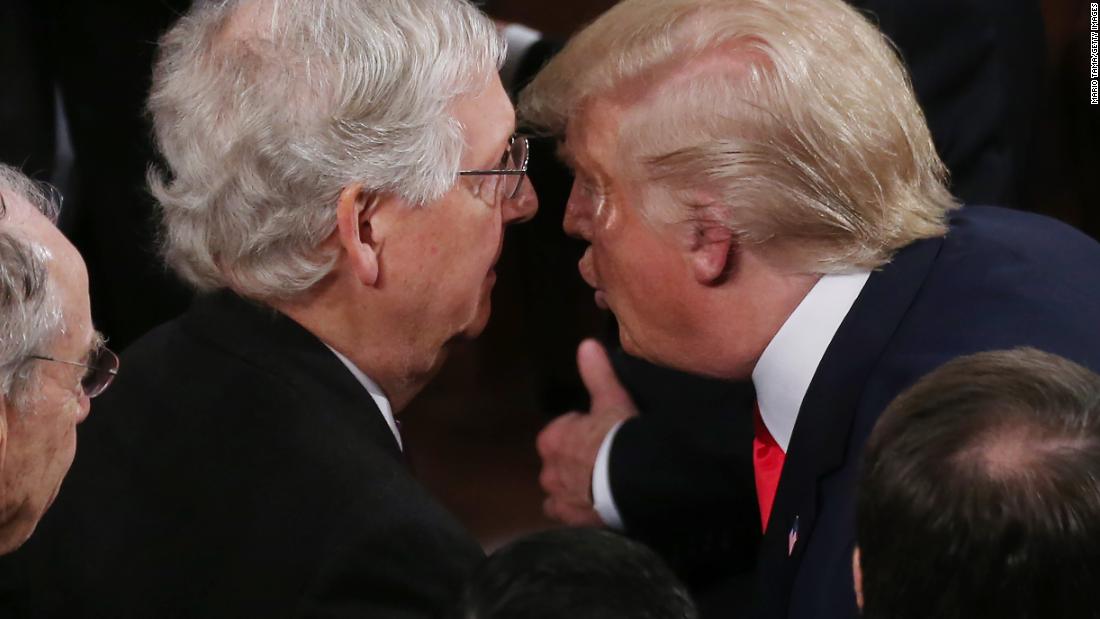[ad_1]

5. Call the conventions?: With public health experts warning that large-scale gatherings like concerts and sporting events may not be advisable until 2021, there’s increasing pressure on the two political parties to reconsider the idea of hosting national party conventions this summer.
And they are reacting very differently.
Last week, the Democratic National Committee voted to approve alternative methods to cast votes for their nominee at the party convention — including the possibility of casting those ballots virtually.
“It is my expectation and hope that we will have an exciting, inspiring convention in August in Milwaukee,” said DNC Chairman Tom Perez in what felt like, in light of the vote, a bit of unobtainable optimism.
If the presumptive nominee is saying that, and there’s a process being put in place to change the way votes are cast, it’s hard to see how Democrats gather in person in Milwaukee in August.
Even as Democrats edge toward a virtual convention, Republicans are refusing to even acknowledge the possibility that cancellation is a possibility.
In an email sent to supporters Saturday, convention CEO Marcia Lee Kelly wrote:
“In 100 days, the Republican Party will gather together, where we will reflect on the incredible legacy and tremendous accomplishments of the Trump Administration.”
Is that a tenable position given what we know about the virus and its transmissibility? Does Trump care?
4. Silent Biden: We’re less than six months away from the November election, and Joe Biden still can’t seem to break through the all-coronavirus-all-the-time coverage.
Biden has been largely holed up in his Delaware home — conducting interviews, holding rallies and raising money from his basement.
What Biden cannot do — he isn’t currently in office — is have any sort of hands-on influence on either the federal or state response to the pandemic. Instead, he is left to offer policy proposals and criticisms of the current administration that wind up getting lost in the churn of the news cycle.
Biden’s struggle to get attention has put the spotlight almost exclusively on Trump — and his handling of the coronavirus. And voters, by and large, have not loved what they’ve seen.
3. What do the coronavirus numbers look like?: For the first time in a long time, the news on coronavirus looks good. Or, maybe better put, less bad.
This may well be the week where we find out if Trump is right. Given the incubation period of coronavirus — and the fact that most states have now been open for business somewhere between seven and 14 days — this next week will be critical in terms of whether a second surge is coming or not.
If not, expect Trump’s victory lap, which is already sort of in progress, to continue. And for the medical members of the White House coronavirus task force to be further shunted into the background in favor of those economic advisers pushing the necessity of restarting the economy — and fast.
If a second surge emerges — whether in a particular state or nationally — the question will be whether our increased testing capacity can limit the spread. And if not, why not?
2. Trump pressures Senate on Russia: Convinced, despite facts to the contrary, that former President Barack Obama and other high-ranking government officials were involved in a plot to hamstring his presidency from the outset, Trump looks poised to pressure Republicans in Congress to do something about it.
“If I were a Senator or Congressman, the first person I would call to testify about the biggest political crime and scandal in the history of the USA, by FAR, is former President Obama. He knew EVERYTHING. Do it @LindseyGrahamSC, just do it. No more Mr. Nice Guy. No more talk!”
“Mitch, I love you, but this is 100% true. Time is running out. Get tough and move quickly, or it will be too late. The Dems are vicious, but got caught. They MUST pay a big price for what they have done to our Country. Don’t let them get away with this! @LindseyGrahamSC”
Knowing Trump — and how obsessed he is over the idea that he is the victim of some sort of broad conspiracy aimed at disenfranchising him and his voters — he won’t give up his push to get Senate Republicans to do more on #Obamagate.
But will they cave? And how?
And how did congressional Republicans react to what is, without question, a historic attempt to eliminate oversight of the massive federal bureaucracy? With tweets, mostly.
“The firings of multiple Inspectors General is unprecedented; doing so without good cause chills the independence essential to their purpose,” tweeted Utah Sen. Mitt Romney. “It is a threat to accountable democracy and a fissure in the constitutional balance of power.”
Oh man! Strongly worded tweets! Trump is really going to be knocked backward by those!
What will Romney, Collins or any other Republican senator — the vast majority of whom offered no comment on the firing — actually do to make clear that Trump riding roughshod over the oversight process is unacceptable?
Oh, nothing. No formal rebuke. No attempt to further strengthen protection for inspectors general. No nothing.
But none will. Because they are afraid of Trump — politically speaking. There’s nowhere near enough brave souls to risk their political careers on trying to rein in Trump — especially because on taxes and judges (the two issues most Republicans care about more than any others) he has been with them.
And so, we go. Trump does something with truly dangerous implications — both for the present and the future — and a few GOP elected officials tweet that he shouldn’t.
Lather, rinse, repeat.
[ad_2]
Source link

